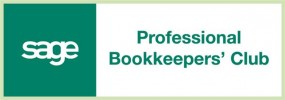Please don’t be taken in by a scheme which claims to reduce the taxable benefit of your company cars. The taxman has specifically warned taxpayers about this scheme on the spotlights page of his website.
The scheme promoters persuade employers to buy carbon credits to off-set against the carbon dioxide (CO2) emissions of company cars. This is fine, but buying carbon credits can’t reduce the CO2 emissions rating of your company cars as recorded on the registration documents.
A vehicle’s CO2 emissions are fixed at the time of its manufacture, and can’t be changed for tax purposes. You must use the CO2 figure recorded on the vehicle’s registration document for calculating the taxable benefit of the car, and the taxable fuel benefit if fuel is provided.
If you report a reduced figure of CO2 emissions for each of your cars on the P11D forms, as persuaded to by the ‘plan green’ promoters, you will pay less class 1A NICs for each car. Also your employees will be taxed on a lower percentage of the vehicles’ list price. However, when the Taxman discovers the P11D forms used incorrect CO2 figures for each car, he will demand payment of the tax and NI avoided plus interest and penalties.


